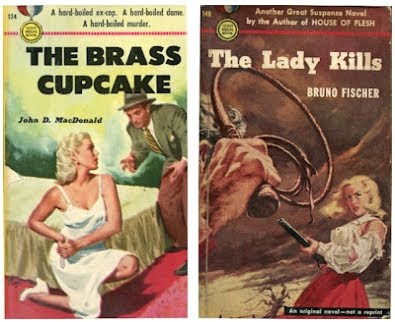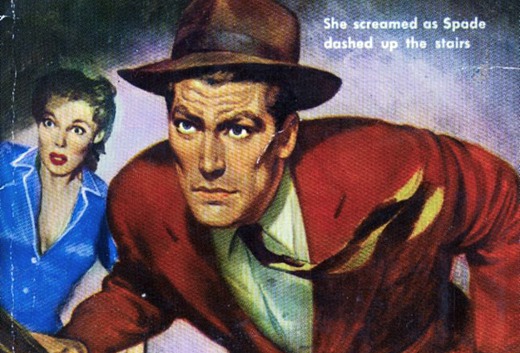As a Halloween treat here's a short and amusing story about a hungry Ghengi and those delicious pink wiggly things. As an added bonus, the first person to guess correctly (one guess per reader) which cast member of the TV show Buffy the Vampire Slayer burst out laughing at the end of this story during a book store event reading will win an autographed paperback copy of A KILLER'S ESSENCE.
PINK WIGGLY THINGS
by
Dave Zeltserman
A rumbling inside made Ghengi
nibble halfheartedly on the cotton fiber. It didn't help much to ease his
hunger, but it was all he had and he knew it could be days before he had
anything else. Ghengi looked at what was left. Thin strands of cotton connected
to that foul rubber padding. The cotton would be gone soon, probably before
dark.
Ghengi prayed that an insect would
haplessly crawl within striking distance. Insects were good. If Ghengi tried
hard enough he could imagine they were really pink wiggly things. Of course,
they weren't pink wiggly things. They were in fact only a poor imitation. But
Ghengi knew they were as close as he could come – as close as he could let
himself come – to those wonderous
epicurean delights.
With a start, Ghengi realized he
was salivating; he had been imagining the taste of a pink wiggly thing. That
was dangerous. If he dwelled too much on it, he would weaken. He wouldn't be
able to resist them the next time they came to brazenly challenge him. And as
ultimately satisfying as they were, the aftermath was so utterly damnable.
It was always the same, and Ghengi
knew it would always be the same. There would be the noise and bright lights
and sticks and heavy leather trying to crush poor Ghengi. And sometimes there
would be that spray followed by a fetid, sour smell that would make his eyes start
spinning and make him bump into things. The only escape from these terrors
would be the outside.
He shuddered at the thought of the
outside. Cold. Damp. All those creatures with sharp teeth and claws trying to
tear him apart. Although, he smiled, none had teeth sharper than his own.
Ghengi stretched his mouth as far
as it could be stretched. His body was only the size of a small plum, but his
mouth opened to its capacity could encompass a large melon. Inside his mouth
were rows and rows of teeth. No bigger than diamond flakes, but sharper than
razors. With his mouth opened, they glistened and sparkled.
Ghengi strengthened his resolve
about the pink wiggly things. He wasn't going to think about them. Let them
taunt him! The price was just too dear. He would have to be satisfied with the
occasional insect, the dustballs, and the other crud that came his way. He
sniffed at the cotton and tore a strand from it, avoiding the rubber padding.
"Will you leave me alone and
take the dog out!"
Miriam's
back was turned to Donald and, as she spoke, he silently mouthed her words,
violently contorting his lips to the point where the edges of his mouth ached.
He had long ceased deriving any pleasure from mimicking Miriam,
but he had to do it. Just, as he knew, his wife had to extend her middle finger
at him when he wasn't facing her. Sometimes he'd catch her at it, and she'd quickly
move her hand back toward her head as if she were straightening her hair. The
times when she would unexpectedly turn around, he'd contort his face as if he
were about to sneeze.
"I'm not trying to bother you,"
he whimpered. He knew he was whimpering. It bothered him, but he couldn't keep
from doing it. Anyway, it annoyed Miriam. "I can't find my slipper. Where
is it?"
"How am I supposed to
know?"
Miriam turned around and Donald
froze, framing his face into an expected sneeze.
"Gesundheit," she said,
her upper lip stiffening.
Donald sniffed a couple of times.
"I can't find my slipper. That damn dog of yours keeps taking my stuff and
destroying it."
"If you put your things away
he wouldn't do it!"
"Look, the past three months
I've had six pairs of socks, a pair of shoes, a pair of pants, and two undershirts
ruined by him.” Donald could feel his
face flushing. “If he destroys anything else, that's it!"
He turned and walked towards the
staircase. He could sense Miriam's right arm stretching out, the middle finger
extended to its fullest. "Take Einstein out!" she demanded coldly.
Donald spun around, catching his
wife straightening her hair. "You take him out," he said. "I'm
going upstairs."
The noises upset Ghengi. There were
many of those noises here, Ghengi thought, but at least they weren't the intolerable
kind. Since he arrived he had only had to suffer through the intolerable noise
a few times, and it never lasted more than a minute. Of all the things Ghengi
despised, the intolerable noise was the most awful. The squeaking and
squealing, the pounding and shaking as if his world were about to collapse on
him. Thinking of it made him dizzy. He was thankful that he found this place.
This one had far less of the intolerable noise than any of the other places
Ghengi had nested in.
He knew he couldn't give in to the
pink wiggly things. If he did he would have to leave. He would be forced
outside. And it could take months before he was able to find another nest.
Those wonderful pink wiggly things.
He wished he hadn't thought of them before. They were haunting him now, torturing
him. It had been so long since he had tasted one, and the desire was growing, dangerously
mixing with his insatiable hunger.
He looked at what was left of the
cotton. At best, it would dull his hunger, but it wouldn't stop it. It always
seemed to be this way; where after a while nothing could truly satisfy the
hunger but a pink wiggly thing.
Ghengi swallowed another strand of
cotton. It was tasteless to him. He ran his mouth over what was left of the
slipper, hoping to find one of those translucent slivers. He had found one
before and it had driven him into ecstasy, reminding him of those wonderful
pink wiggly things. No such luck this time.
He went over it again. In his
desperation he even endured the foulness of the rubber padding. There was
nothing to find.
A dull thumping noise approached
Ghengi. He knew it came from one of those monstrous creatures; a Guardian, the
ones who brought about the terrors. They were the protectors of the pink wiggly
things.
Ghengi could sense it was close. He
started to see its awful face, and in an instant compressed himself against the
wall. Under the shadows of his home, Ghengi knew he'd be safe. The creature
would think he was only an imperfection in the plaster.
Ghengi sniffed. The pink wiggly
things were near. The Guardians always foreshadowed their arrival, and he could
now smell them. He pulled himself from the wall and saw that he was right. They
had come. Five of them. They always came in groups of five. Wiggling towards
him. Tempting him. Oh, they were so bold! Ghengi noted that these ones were
thicker and plumper than other pink wiggly things he had encountered. Or maybe
it was the hunger playing cruel tricks on his eyes.
They weren't worth the terrors. Ghengi
repeated that to himself. Or at least one pink wiggly thing wasn't… but five?
If Ghengi moved fast enough he could possibly snatch all five of them. He had
never thought of that before. Maybe, just maybe…
A harsh, scratching noise froze
him. It was followed by a soft thud. From beyond the pink wiggly things, a
small sphere rolled towards him. It smelled of dog saliva and leather. Well, it
wasn't a pink wiggly thing, but it also wouldn't bring out the wrath of the
Guardians. Ghengi snapped back to his senses. He blinded himself to the pink wiggly
things that were tempting himself so and instead let the sphere roll into his
mouth, and then he started gagging, the sphere dropping from him.
A trick! A despicable, vile trick!
It wasn't leather, but nasty rubber made to smell like leather. Foul, most foul
taste! Pain immobilized him, and at the same time the hunger within him grew
into something unbearable. He had to get that vile taste out of his mouth, and
just as importantly, he needed to satisfy his hunger. Desperately, he looked
around and saw that the pink wiggly things were gone. And to add insult to
injury they had stolen what was left of the slipper. If Ghengi had tearducts he
would've cried.
Donald studied his shredded slipper,
then nodded grimly at Einstein, who sat in the doorway, tongue hanging out,
panting.
“Proud of yourself, are you?
Another nineteen dollars and ninety-nine cents, plus tax, down the
toilet."
Einstein barked.
Donald looked at the dog and then
at the open window. The bedroom was on the second floor. "You want to play
ball, is that it?" he asked. The dog barked again. "If I throw the
ball out the window, you'd be stupid enough to chase after it, wouldn't
you?"
Einstein wagged his tail.
"You would, wouldn't
you." Donald nodded. He got up and walked over to the dog. He scratched it
behind the ear. "You are that stupid. You'd be only too happy to jump out
the window and break your neck." His hand moved from behind the ear to the
dog's thin neck. He felt the bone.
"Okay, then." Donald
half-smiled. "Let's play ball. Go get your ball, stupid."
The dog didn't move. A long strand
of drool fell from his mouth. Donald studied him. "You want me to get it,
huh? It's okay for you to drag my things under the bed and rip them apart, but
you won't go under there for your ball, is that it?"
Einstein gave a thin whine.
Donald compressed his lips into a
tight smile. He moved back to the bed and lowered himself onto his knees.
"Okay, Stupid, I'll get your ball and then we'll play." He pressed
his head against the bed and reached underneath it, feeling for the dog's
rubber ball. Out of the corner of his eye he caught sight of Einstein studying
him, and it startled him. The dog had a weird look on his face, a look that Donald
had never seen on a dog before.
Of course, it was only a look of
amusement. After all, look who was calling who stupid. If Einstein had any pink
wiggly things, he certainly wouldn't put them anywhere near a hungry Ghengi.
###






























